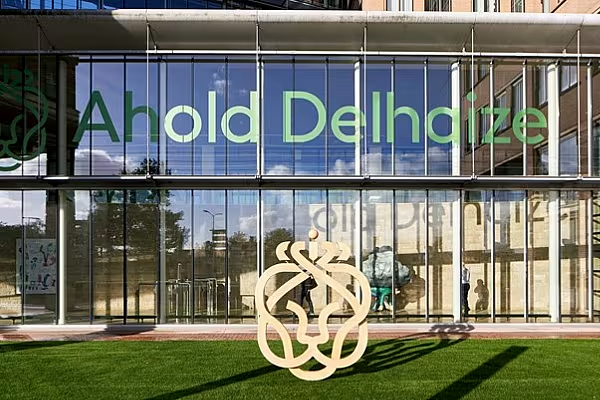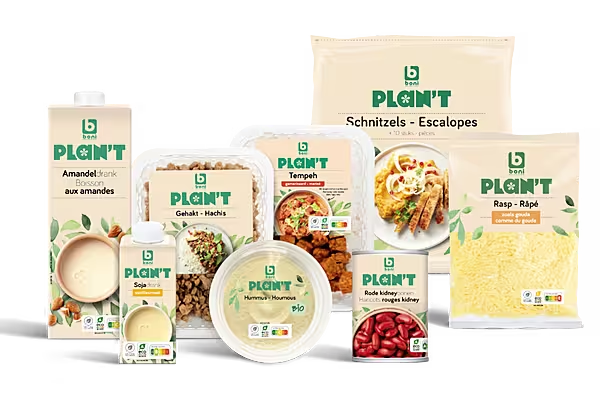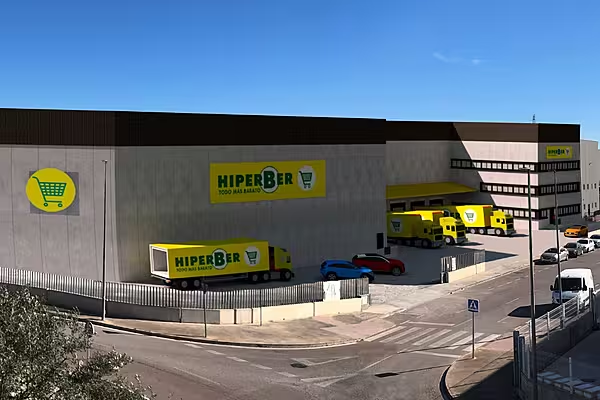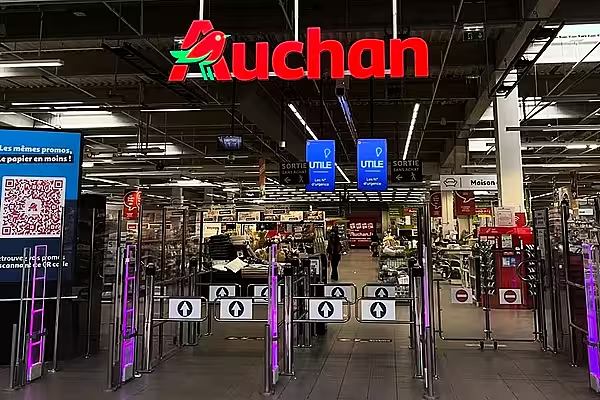As Frans Muller, chief executive of Ahold Delhaize explains, choosing to eat healthier shouldn't be a trade off for consumers. This article first appeared in ESM July/August 2022.
A lot has happened since ESM last caught up with Frans Muller in 2019 – a global pandemic, geopolitical upheaval, widespread inflation – but the Ahold Delhaize chief executive is nonetheless bullish about the future, particularly when it comes to helping its shoppers live healthier, more fulfilling lives.
Muller is a co-sponsor of The Consumer Goods Forum’s Collaboration for Healthier Lives (CHL) coalition, alongside Brian McNamara, CEO of GSK Consumer Healthcare (soon to be renamed Haleon), and Mark Schneider, CEO of Nestlé. The recent CGF Global Summit in Dublin offered the coalition the opportunity to take stock of the current challenges facing consumers, and the knock-on effect this may be having on their diets.
“It is very much linked to our fundamentals, beliefs, and the strategy of our company,” Muller says of Ahold Delhaize’s commitment to healthier diets. “If you’re in food, and if you’re in so many different communities, you know how important it is to make communities thrive, and to make sure that you set up people for success with a good, healthy basket. During COVID, everybody had the chance to evaluate what was most important in their lives. This is what we are focusing on.”
As he explains, the challenge of encouraging people to eat healthier is universal, regardless of geography – Ahold Delhaize operates stores in the US, Benelux, Greece and central and eastern Europe.
“You see the same topics coming back again and again,” he says. “How do we make healthy baskets more accessible? How do we ensure that people understand the right balance in their diets? How do we help them focus on their lifestyle and exercise? It’s a multi-faceted, multi-category journey, and it’s all about collaboration.”
Pre-Competitive Objectives
As well as CHL co-sponsors GSK and Nestlé, a myriad of retailers and consumer goods firms have reined in behind the coalitions goals – Danone, Walmart and Unilever are members of the coalition’s committee, with countless others, from Barilla to Bel Group and M&S to Mars, fully engaged on what Muller describes as “pre-competitive” objectives.
“Aligning goals is not so difficult – for example, in the UK, we had Tesco and Sainsbury’s working together on a healthier lives project,” he says. “But while it’s not so difficult to align on the objectives, it’s more difficult to align on the speed and scalability. How do you check and measure success? How can you scale fast? And how can you adjust when things are not 100% working?”
One area in which he believes more work needs to be done is around the standardisation of nutrition labelling, which is, on the one hand, often confusing for consumers, and on the other, awash with numerous different labelling schemes.
“For example, a lot of people do not know how to read nutrition levels,” he says. “We need to talk more about these things.”
Ahold Delhaize, for example, has adopted the Nutri Score system, which, while it has seen widespread adoption, has also seen some resistance.
“We have had internal discussions about it, and our Greek colleagues say that it doesn’t reflect the Mediterranean diet,” says Muller. “Of course there is going to be some pushback. But Nutri Score is, let’s say, 80% of where we need to get to, whereas having ten different nutrition systems is zero percent of where we need to get to.”
As well as customer-facing initiatives, Ahold Delhaize is also taking steps to ensure that its own personnel are aligned to the same journey, with the group undertaking workplace initiatives to encourage healthier living. This has been challenging during the pandemic, Muller explains, with the group eager to promote good mental health, as well as physical health.
“We saw that during COVID, a lot of people were under stress, with difficult family situations, and working from home and things like that,” he says. “Even after the pandemic, absenteeism is still higher than it used to be. That’s another area that the CHL is focusing on – the whole area of mental health.”
The Bigger Picture
Of course, encouraging shoppers to eat healthier is one thing, but reality is often quite another. Consumers are under severe financial pressure, and are watching every penny – in Ahold Delhaize’s home market of the Netherlands, for example, a recent CBS study found that close to a third (30%) believe their financial situation will deteriorate this year, up from 16% in the same period in 2021.
For Muller, therefore, more effort needs to be made around information and reformulation, particularly in relation to the group’s value-focused ranges.
“We don’t want to have people making the trade off of either paying their rent or paying for good food,” he says.
“Within our own business, we have a very high percentage of private label – as much as 50% in the Benelux, 30% in the US and 25% to 30% in central and eastern Europe. And we are very conscious that we also need to meet the same nutritional standards with these products, for example Nutri Score ‘A’ and ‘B’ scores.”
Through this, the retailer is seeking to “change the perception that healthy food is, by definition, more expensive”, as Muller puts it, while also engaging in negotiation with suppliers to ensure that the inflationary impact on shoppers can be minimised.
“We have a role to play in making sure price inflation is kept as low as possible for consumers, and focusing in on areas in which we need to negotiate. Every category is affected by cost increases – for labour, packaging, plastics and transportation. So, sometimes we have to have tough discussions, and these discussions are more complex than they were two years ago.”
The Digital Journey
Digital also has an important role to play when it comes to customer engagement around healthier living, Muller says, pointing to the retailer’s app, from which recipes can be downloaded straight to a user’s shopping list (as well as guidance on where to find said products in their local store), and in-store technologies such as shelf-edge labelling.
“We are seeing more dynamic pricing in our stores, giving people the opportunity to buy products at the end of the day, or at the end of their shelf-life, at cheaper prices,” he says. “This provides extra value to shoppers and also enables us to reduce our food waste.”
At Ahold Delhaize’s annual general meeting earlier this year, Muller said that further digitalisation of its business would be key to driving the group’s investment plans over the coming years – accelerating digital innovation will help “customers to eat well, save time and live better”, he said at the time. This is starting to come to fruition, he tells ESM.
“The retail ecosystem is changing,” he says. “It’s not only about online and offline, it’s about same-day immediacy, about connection with logistics partners. That’s only possible when you are digitally connected.
“Let’s not forget, 41% of my colleagues are Gen Z. They have a completely different perception and expectation of how they would like to shop, if they would like to shop omnichannel, and if we aren’t with them on that journey, we’re like the dinosaurs. They will just move on to the next retailer.”
As Carrefour’s Alexandre Bompard explained at the CGF Summit, boasting a comprehensive bricks and mortar portfolio while also seeking to develop an online business shouldn’t be seen as a handicap – rather they are all spokes in a broader omnichannel structure. Muller agrees.
“We’re seeing a big convergence,” he explains. “Five years ago, people were predicting the death of the supermarket. The hypermarket would die even quicker.
“But it didn’t happen, because it’s now an omnichannel game – you need to be very strong on your online and digital proposition, but also your physical retail proposition. We have believed that for a long time.”
© 2022 European Supermarket Magazine – your source for the latest retail news. Article by Stephen Wynne-Jones Click subscribe to sign up to ESM: The European Supermarket Magazine.














